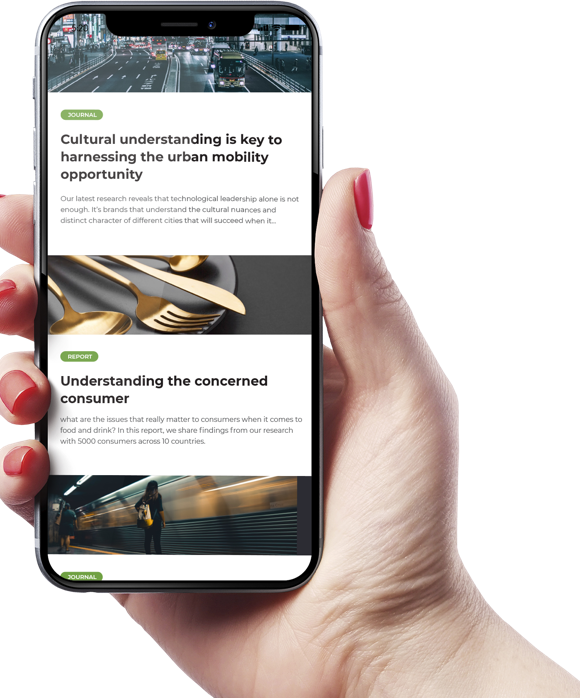Microsoft recently made a substantial commitment to OpenAI’s ChatGPT —a chatbot released late last year, announcing its intent to invest $10 billion, while tech giant Google is scrambling to produce a rival for ChatGPT called Bard.
Artificial Intelligence (AI) is advancing at a remarkable rate, raising several questions about the dangers and risks of an AI takeover in every walk of life.
Artificial Intelligence (AI), the ability of computers to perform tasks that typically require human intelligence, such as speech and image recognition, iterative learning, and creative thinking, has been a touchstone of hope and anxiety for decades.
AI is within reach of many industries, including healthcare, education, retail, and, believe it or not, mining. Of course, the field of market research is no exception.
In market research, will AI put jobs on the chopping block, or will it set off a renaissance of new market research innovation and jobs? Will machine learning in market research annihilate the human element or propel the industry forward with accelerated momentum?
Stephen Hawkings cautioned the world about the rise of artificial intelligence.

These questions have been a major source of anxiety for many. But before we dive into these questions, let’s look at a brief history of AI, the types of AI, and how to use AI.
A Brief History of Artificial Intelligence
Let’s look at how AI has evolved over the past few decades.

Artificial Intelligence can be divided based on capabilities and functionalities.
There are three types of Artificial Intelligence-based on capabilities.
Narrow AI
Also known as Weak AI, Narrow AI specialises in one task and cannot exceed its boundaries. This subset of AI is advancing in that single domain, becoming more ubiquitous in everyday life as machine learning and deep learning progress.
Let’s look at the capabilities of Narrow AI using real-world examples. From the iPhone’s Siri virtual assistant to self-driving cars, utilising vision recognition and product recommendation engines, this type of AI utilises pre-programmed abilities to serve users but often fails to assist with tasks outside its scope. On the other hand, IBM Watson is an advanced data analytics processor that employs natural language processing, an advanced technology that deciphers human language for syntax and significance. Watson has the power to rapidly perform analytics on enormous volumes of data to respond to human inquiries accurately. Interestingly, Watson competed and outsmarted a contestant on the popular TV game show Jeopardy!
Get regular insights
Keep up to date with the latest insights from our research as well as all our company news in our free monthly newsletter.

Other popular examples of Narrow AI include Google Translate, image recognition software, recommendation systems, spam filters, and Google’s page-ranking algorithm.
General AI
General AI, otherwise known as strong AI, is a form of Artificial Intelligence (AI) that has the potential to understand and learn any task a human being can. AI researchers have yet to develop this technology to its fullest capacity, needing a method to give machines the ability to think cognitively.
Fujitsu has built the K computer – one of the world’s fastest supercomputers- to create strong AI. Meanwhile, China’s Tianhe-2 has been deemed the most powerful supercomputer in the world, as it can calculate 33.86 petaflops (quadrillions of cps). This still needs to catch up to what the human brain can accomplish.
Super AI
Artificial Superintelligence (AI) has surpassed human intelligence and can do any task more efficiently than a person. Super AI is imagined to be so close to the human sentiment that it not only comprehends them but can create its own feelings, requirements, opinions, and wishes. As of now, its concept remains just hypothetical. However, it is thought to possess significant abilities like contemplating, resolving issues, and generating its own judgments and decisions.
In terms of functionality, there are four main types of Artificial Intelligence.
- Purely Reactive
As the name suggests, these AI machines do not use any data or memory. They specialise in one field. An example would be in a chess game where the machine observes the player’s moves and makes the best possible decision to win. - Limited Memory
These machines use previous data, but memory is limited. They have enough previous data to make decisions, but their memory is minimal. An example is suggesting users a convenience store based on the location data.
- Theory of Mind
This type of AI goes beyond hard data and can interpret emotions and thoughts.
- Self-Aware
Self-aware machines are smart as well as conscious. These are the future of AI.
So how does AI work?
Artificial Intelligence utilises an abundance of data and intelligent algorithms, in tandem with high-speed processing, to understand patterns in the data and self-teach accordingly.
Artificial Intelligence is expected to revolutionise the market research industry in several ways:
- Data Collection and Analysis: AI-powered tools can collect, process and analyse large amounts of data faster and more accurately than humans, leading to more comprehensive and actionable insights.
- Customer Insight: AI can help uncover hidden patterns and connections in customer data, providing deeper and more personalised insights into consumer behaviour.
- Predictive Analytics: AI-powered predictive analytics can help companies anticipate consumer behaviour, market trends, and buying patterns, allowing businesses to make more informed decisions.
- Sentiment Analysis: AI can analyse large volumes of customer feedback, social media data, and other unstructured data sources to provide insight into consumer opinions and emotions.
- Chatbots and Virtual Assistants: AI-powered chatbots and virtual assistants can interact with consumers and collect data, freeing up researchers’ time to focus on analysis and interpretation.
- Improved Efficiency and Accuracy: AI can automate repetitive tasks, reducing errors and allowing market researchers to focus on more creative and strategic initiatives.
Artificial Intelligence is a powerful tool that can significantly enhance the work of market researchers, but it is unlikely to replace them completely.
Here are some ways in which AI will not replace the role of market researchers:
- Interpretation and Analysis: AI can provide vast amounts of data and insights, but it is up to market researchers to interpret the results and provide meaningful insights and recommendations.
- Creative Problem-Solving: Market researchers are responsible for devising and executing research strategies, which requires creative problem-solving and human intuition. AI is not capable of replacing this critical aspect of the research process.
- Ethical Considerations: AI operates based on algorithms and data inputs, sometimes resulting in biased or unethical outcomes. Market researchers must consider ethical considerations and ensure that research methods and results align with the values and goals of the organisation.
- Communication and Presentation: Market researchers are responsible for communicating the research results to stakeholders, which requires strong communication skills, the ability to tell a story, and the ability to present data in an engaging and actionable manner.
- Contextual Understanding: AI operates based on patterns and algorithms, but it cannot replace the human understanding of context, culture, and individual circumstances that is critical to providing meaningful insights.
AI disruptions are everywhere.
AI is quickly disrupting how brands approach customer service, product creation, marketing, and data analysis. Companies are beginning to integrate AI into many aspects of their operations. Here are a few of the major brand disruptions that AI is bringing to the market:
One brand that has caused a disruption in the marketplace through AI is Amazon. By incorporating machine learning, Amazon has made real-time decisions to respond to customer needs. By taking into account past customer behaviours and preferences, Amazon offers personalised product recommendations. Amazon has also used AI-enabled facial recognition technology in their warehouses to automate and improve the inventory process.

Another brand that has disrupted the market using AI is Microsoft. Microsoft provides businesses with advanced predictive analytics and natural language processing capabilities through its Azure AI platform. With these features, businesses can use machine learning to develop more accurate forecasting models. Additionally, brands can more effectively identify customer trends and behaviour, enabling them to respond quickly to changing customer demands.
Finally, Tesla is another company that has used AI to disrupt the market. The company has enabled its autonomous vehicles to read and recognise their environment using computer vision. This allows their cars to recognise traffic signals and lane markings, resulting in a safer driving experience. Additionally, their AI-powered Autopilot system allows their cars to make real-time adjustments to improve their driving performance.

Will robots dominate the world?
Artificial Intelligence has progressed at a phenomenal rate, and its expansive possibilities have prompted fears about the probability of an AI takeover.
In Nick Bostrom’s book Superintelligence, the opening story “The Unfinished Fable of the Sparrows” offers a parable of how AI’s growing strength and abilities can stir feelings of unease and worry. The story follows some sparrows that sought a pet owl, disregarding the worries of one sparrow that cautioned about the difficulty of controlling such a creature. Instead of addressing this doubt, the group simply deferred the issue for future resolution.
Elon Musk, the founder of Tesla, SpaceX, and Neurolink, has also openly expressed the potential dangers of AI. However, since the benefits of AI are enormous, he suggests a regulatory body to minimise the dangers and risks associated with it.

Overall, while AI can significantly enhance the work of market researchers, it will not replace their expertise and creativity. Instead, market researchers will likely embrace AI as a tool that enables them to do their jobs more efficiently and effectively.


 Senior Marketing Executive
Senior Marketing Executive Sales & Marketing
Sales & Marketing General Manager PR -Internal Communications & Government Affairs
General Manager PR -Internal Communications & Government Affairs Vital Strategies
Vital Strategies
 Customer Intelligence Director
Customer Intelligence Director